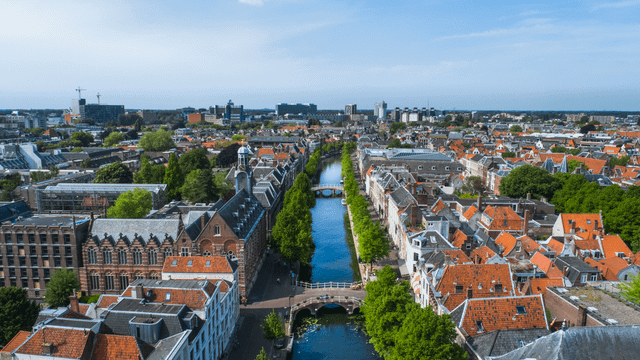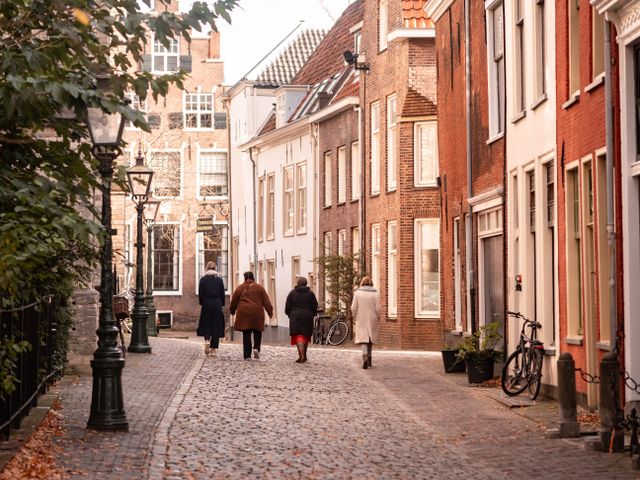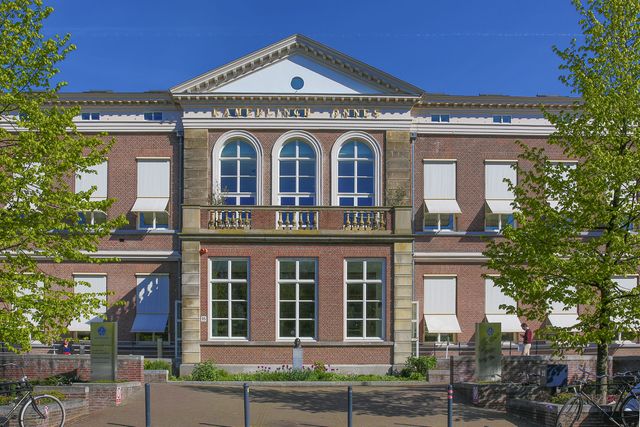What will 2024 bring? Interview with Leiden-Delft-Erasmus Dean Wim van den Doel
Professor Wim van den Doel is the Dean of Leiden-Delft-Erasmus Universities. Together with his team, he works to stimulate cooperation between the three universities in multidisciplinary research and education. With results because LDE now stands for a wide range of joint research centres, bachelor and master education , minors and thesis workshops. What will 2024 bring? Van den Doel looks ahead.
What is going on within the Leiden-Delft-Erasmus alliance?
Van den Doel: 'This year is all about developing a new strategy for Leiden-Delft-Erasmus. That will cover the period from 2025 and run until 2030. But we are looking further ahead, even to 2050, because we will be facing major social issues in the coming decades for which we already need to train students now.'
'Those issues require an interdisciplinary approach, besides the fact that we simply still need smart lawyers or mechanical engineers. But what is certain is that we will put even more emphasis on interdisciplinary cooperation in education and research - it is simply necessary to be able to shape all the complicated transitions properly.'

What questions are you asking about the future that are relevant to the new strategy?
Van den Doel: 'The future can never be fully predicted and events can upset the course of history quite a bit, but it is clear, for example, that there will be billions more people in the world, most of whom will live in cities. There is also climate change, threats to biodiversity, energy transition and many social, medical and technological developments.'
'The question we ask is: What should students learn now if they want to contribute to these issues later on? Not just in terms of content but also in terms of skills, such as learning to cooperate outside their own field. The good news is that with combined strength of Leiden University, TU Delft and Erasmus University Rotterdam, we can achieve a lot, in education and research. How, we will discuss further in the coming months.'
Who are thinking about the new strategy?
Van den Doel: 'First of all, those most involved provide input for the new strategy. Think of the Leiden-Delft-Erasmus centres working on their new multi-year plans. They are doing so partly based on the recommendations of the Gielen evaluation committee. In that sense, a new strategy does not come out of the blue: we continue on the basis of what has been achieved.'
'This has already allowed us to outline the contours of the new strategy. From there, we will initiate further discussions. We are also organising an afternoon in Delft on 18 April in which we will ask stakeholders to think about the new themes. This is also important for the network. A strategy is only effective if there are people who get to work with it.'

Is society itself thinking along?
Van den Doel: "Of course we also want voices from 'outside' the universities, we are there for society. That is actually an ongoing conversation we have. With governments, colleges, the business community and other organisations. The Leiden-Delft-Erasmus alliance is broader than the universities alone, we want to involve those partners in our mission towards 2030. Take, for example, the Healthy Society programme to which the university medical centres and the universities for applied sciences are linked to LDE via Medical Delta.'
What does an alliance deliver?
Van den Doel: 'Leiden-Delft-Erasmus ensures that all kinds of initiatives are arranged between the three universities. From joint programmes and minors for students to joint interdisciplinary research. New components are added every year. Abroad, they sometimes look at the cooperation in South Holland with a certain jealousy.'
'We are entering our twelfth year and that makes Leiden-Delft-Erasmus a well known entity by now, whose reputation is also increasing. This is important for 'bottom up' initiatives by researchers and teachers, but also for external assignments for student projects such as thesis labs. In doing so, every university wants to make an impact. Together you have more power and: together you are smarter.'
